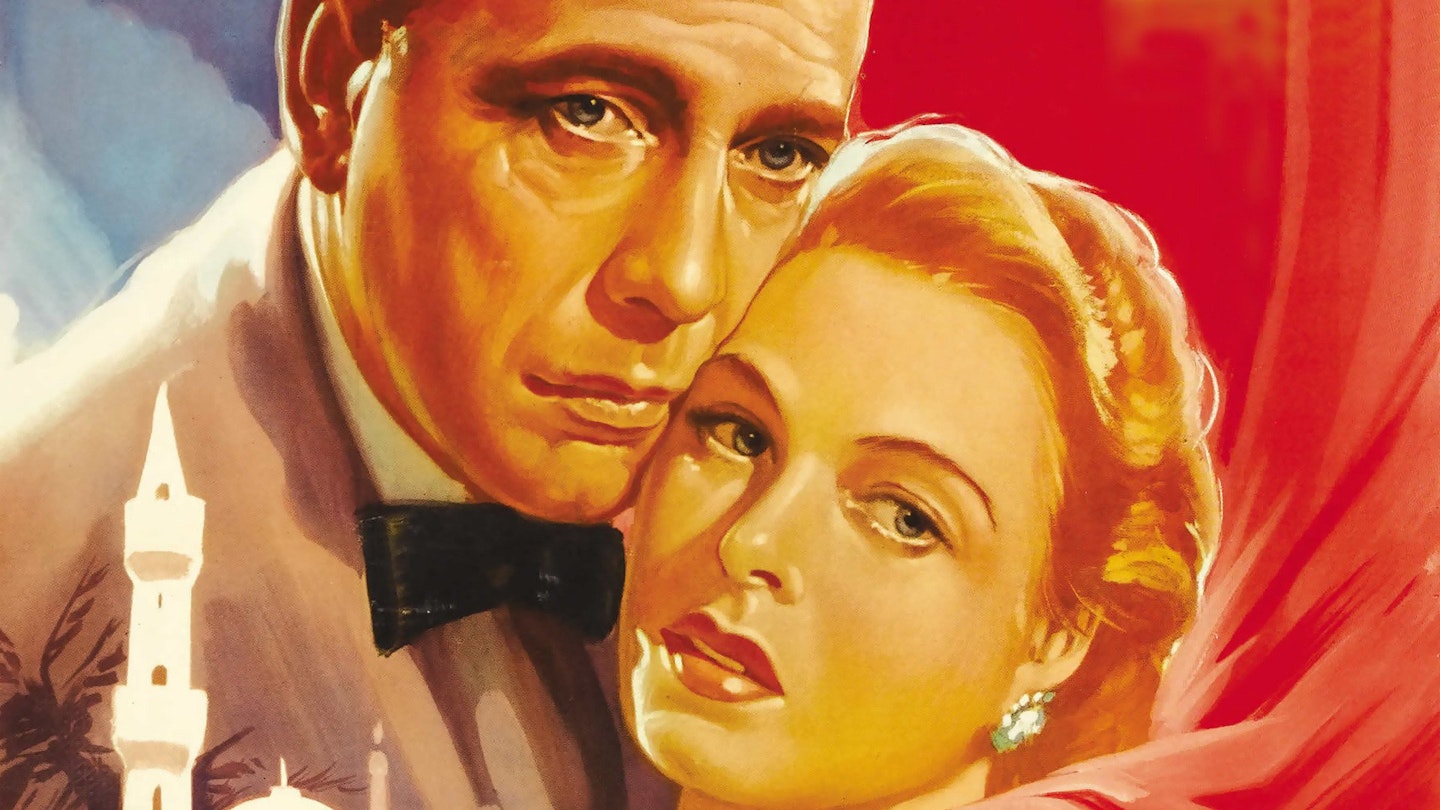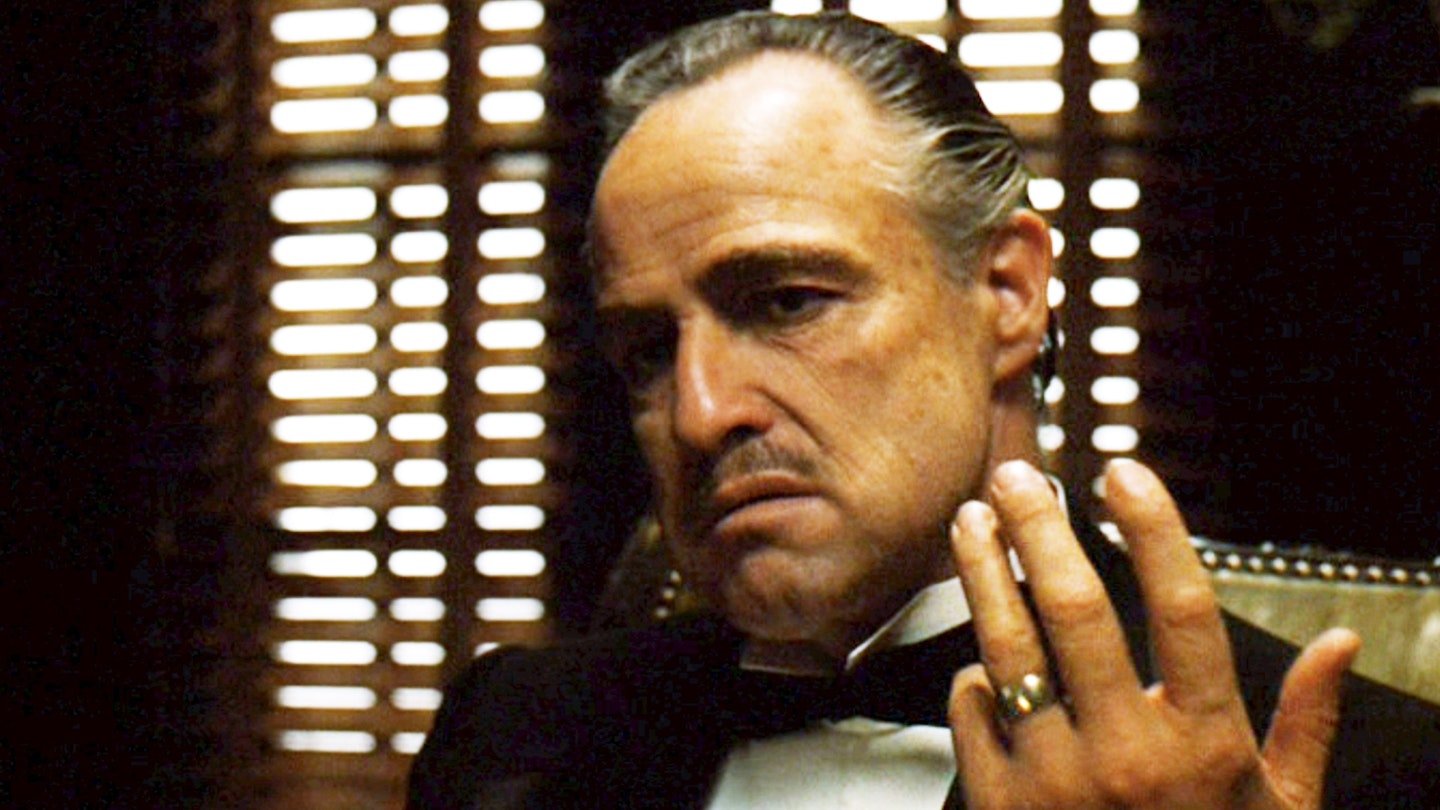On paper, perhaps it doesn’t sound so much: the woman who broke a man's heart walks into his bar — "of all the gin joints in all the world"—with her husband. But "the problems of three little people" are compounded by wartime intrigue in a dangerous, mysterious locale. You must remember this: you can't trust anyone who doesn't love Casablanca. Never mind that screen writing mavens use it as a model for structure and narrative, or that it received Academy Awards for Best Picture, Director and Screenplay. The fundamental thing is that everything in the film's magical, melodramatic combination of patriotic wartime sentiments, desperate refugees and star-crossed lovers works beautifully, every time.
Casablanca is almost certainly — to the astonishment of those involved in its somewhat chaotic production — the most enjoyable wannasee-again-and-again picture ever made. As Philadelphia Inquirer critic Carrie Rickey once wrote, "Though not the best movie ever, it's the best friend among American films." Every time you see it, one or another gem of dialogue from the treasure store of worldly witticisms and ironic exchanges strikes you anew. (Rick: "I came to Casablanca for the waters." Renault: "What waters? We're in the desert." Rick: "I was misinformed.")
Casablanca began as a play, Everybody Comes To Rick's, by Murray Burnett and Joan Alison. Burnett got the idea from a European trip in 1938, when he became aware of refugees in flight from Nazism and observed the colourful crowd in a nightspot in the South of France — the inspiration for Rick Blaine's French-Moroccan 'gin joint' (an expression Bogie himself substituted for 'cafe').
In the first of many twists of fate, the play came into a Warner Bros studio reader's hands on December 8,1941, the day after Pearl Harbor. As the US declared itself at war. studios raced to get patriotic pictures into production. Two weeks later, Warners' executive in charge of production, Hal Wallis, decided to make the film, changed the title to evoke the exotic romanticism of the studio's hit Algiers, and announced it as a done deal before contracts were signed (Burnett and Alison reputedly receiving a record $20,000 for the rights to an unproduced play).
Contrary to myth and some curious publicity ploys, Humphrey Bogart was always in Wallis' mind for Rick, and sibling screenwriters Julius J. and Philip G. Epstein were briefed to tailor it to him. When the Epsteins went to work on Frank Capra's Why We Fight documentary series, they were only half done with Casablanca, to which they would return. Howard Koch (who had scripted the most famous radio broadcast in history, the panic-inducing adaptation of The War Of The Worlds for Orson Welles) was brought in.
The self-sacrificing love story that is the soul of the film was the Epsteins' providence. So, too, was the smart, cynical humour that brings the supporting cast and background figures to extraordinarily vivid life. Uncredited, Casey Robinson (screenwriter of several hits, including Now, Voyager) re-wrote the Paris flashback sequences that reveal Rick's love affair with lisa Lund and his heartache. But the plot of Casablanca is a political thriller, and it was Koch (whose literate liberalism later saw him blacklisted) who dealt with that. He tackled Bogart's concerns about Rick's background, fleshing out the embittered, enigmatic, idealistic but ultimately heroic character that Bogie personified with immortal style.
Ilsa was another problem. Originally she was an American gold-digger who wrecked Rick's marriage but dumped him for the richer Victor, to whom she was mistress, not wife. The censors would have gone bananas, and the filmmakers wanted her sympathetic, hence the notion of a vulnerable, dispossessed European duty-bound to her husband. Algiers beauty Hedy Lamarr was unavailable, so Wallis negotiated with David O. Selznick to borrow Ingrid Bergman (in exchange for Warners actress Olivia de Havilland). With the script still incomplete, Bergman fretted that she didn't know which man she would end up with. But it is one of those rare miraculous accidents that Bogie and Bergman, although he was standoffish to her off-camera, are sublime together on screen.
Paul Henreid, then starring with Bette Davis in Now, Voyager, was less than thrilled about what he saw as the preposterousness of playing a Czech Resistance leader who would escape a concentration camp to turn up in Morocco, elegantly dressed for sophisticated sparring with Nazi officials. However, he gritted his teeth and did it in return for prominent billing and Warners' help with his visa status. Conrad Veidt, an outspoken opponent of Nazism who had narrowly escaped Germany, far from resenting typecasting as Major Heinrich Strasser actually had it in his contract that he exclusively play villains, so adamant was he that playing suave Nazi fiends would help the war effort.
Emigre director Michael Curtiz, not so much an artist as a supremely skilled craftsman who imposed himself in many genres, had a perfectionist — some said tyrannical — personality on sets. He also had an infatuation with Americana and its emotional sentiments that unified all of Casablanca's elements and creative talents into its fast-paced, atmospheric, utterly captivating whole. Warners' boast that people of 34 nationalities collaborated on the film may have been an exaggeration, but it certainly embraced a great many. There is no better example than Casablanca of the Hollywood melting pot. The film created a world in miniature, in which basic universal desires, sins and impulses, for bad and good, are enveloped in glamour, suspense and style.
Casablanca is universally beloved because it presents the most admirable, inspirational myth of Americana in its romantic idealism: Rick's redemptive surrender of Ilsa for the greater good, and his departure to join the fight for right. The first time you see it is just the beginning of a beautiful friendship.

